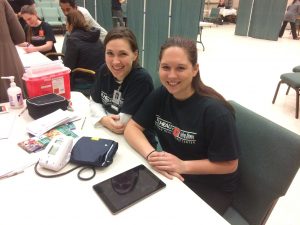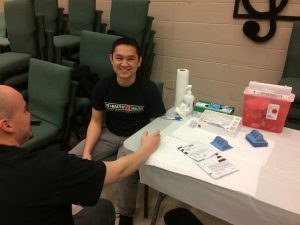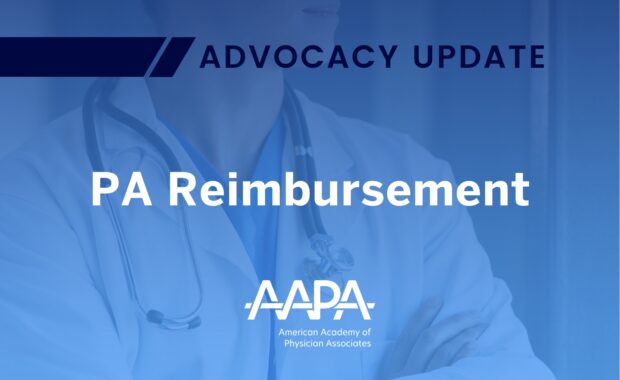Mental Health Curriculum Benefits Community and Students
PA Foundation IMPACT Grant Supports Curriculum
September 27, 2017
By Eileen E. Denne

Approximately one in five adults in the U.S. – 43.8 million, or 18.5 percent – experience mental illness in a given year.1 When considering a project that might benefit her community and her students, Jennifer Forbes, MHS, PA-C, former assistant professor at Idaho State University (ISU), felt that improving mental health was an important area to pursue.
“My colleagues and I started doing research about the state of mental health in Idaho,” said Forbes. “Statistics were very alarming. We wondered how we could have a positive impact on the community and improve health outcomes in patients with mental health disorders. We decided to create a mental health education curriculum to educate members of the community about basic mental health principals and to enable them to recognize if someone is having a mental health crisis.”
In addition to having a positive impact on patients, Forbes was pleasantly surprised at how successful they were at teaching students how to educate patients.
ISU’s project “Improving Mental Health in Idaho through Community Based Screenings and Patient Education” received a PA Foundation IMPACT Grant in 2016. The IMPACT Grant Program, established in 2015, provides funding to support patient-focused, community-based health projects that demonstrate an impact on patient health outcomes.“

“As I watched the students deliver the curriculum, I heard most of the patients say they knew someone with a mental health disorder and they were willing to share their story with students.”“During the physical exam,” Forbes said, “PA, nursing, pharmacy, and dietitian students worked as a team to counsel patients on nutrition and review medications with patients. They used an iPad to deliver the interactive mental health curriculum. Among the questions students asked patients were ‘Do you knowanyone who has suffered from a mental health disorder and if so, how did it affect their life?’
When comparing the pre- and post-surveys of community participants, Forbes and her ISU colleagues found that the patients were better able to recognize signs of mental illness or of someone having a mental health crisis, and find resources in the community. They were more willing to seek treatment or help someone else seek treatment for a mental disorder after completing the mental health curriculum.
ISU used IMPACT Grant funds to purchase services, materials and supplies to create and deliver the mental health curriculum. The curriculum and patient educational handouts were available in English and Spanish. Educational handouts were printed so patients could take home a summary that included a list of local and national mental health resources.

“The grant funding gave us the opportunity to use technology while delivering a valuable mental
health education curriculum that was very professional in appearance. It also allowed us to create durable take-home patient educationmaterials,” said Forbes.
Forbes found that the project was really beneficial to students. “Our primary goal was to have a positive impact in the community and we were surprised at how much the students learned in the process. I witnessed the students gain confidence and proficiency in educating their patients as they gained experience delivering the curriculum. Educating patients is such an important aspect of what they are going to do in practice. The studentsalso commented on how valuable it was to learn about mental health resources that were available in their community.”
ISU has scheduled its next community health screening on Sept. 21 and will include the mental health curriculum. Although Forbes left her ISU post in July 2017 to join the University of Utah PA Program, she hopes to incorporatethe mental health curriculum there. She said the curriculum would be easy to replicate at other PA programs.
Another tool for PAs and PA students interested in learning more about mental health is the PA Foundation’s new Vital Minds podcast series, which explores topics relevant to PAs and healthcare providers. Two episodes on mental health are currently available: “Mood Disorders and Depression” and “Mental Health First Aid.”
The next mental health-focused IMPACT Grant cycle will open Oct. 2. PAs and PA students with innovative ideas for improving mental health in their community like the ISU mental health screening and education initiative are encouraged to apply online by the Nov. 10 deadline.
1Any Mental Illness (AMI) Among Adults. (n.d.). Retrieved Oct. 23, 2015, from http://www.nimh.nih.gov/health/statistics/prevalence/any-mental-illness-ami-among-adults.shtml
Eileen E. Denne is AAPA’s director of corporate communications. Email her at [email protected].
Thank you for reading AAPA’s News Central
You have 2 articles left this month. Create a free account to read more stories, or become a member for more access to exclusive benefits! Already have an account? Log in.
